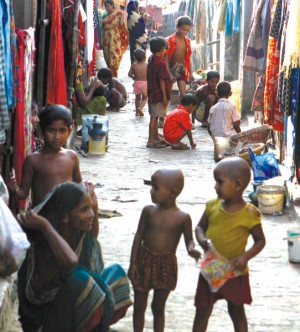Letters
Defining Women Empowerment
These days Women Empowerment is the most discussed, debated and written about issue. It is highly concerned with our developing world. I am writing because some people are defining women empowerment incorrectly. Putting on trousers and behaving like men is definitely not female empowerment. Empowerment can be achieved when a woman is given the authority to make decisions about her likes and dislikes and what she wants to do. Making a decision on a pregnancy is an example. Our society needs to empower its women. If we do this we will see many positive changes around us. Women should be made aware of this issue and what it is to be truly empowered and encouraged to help other women stand up for their rights. Not just the women, men should stand up for female rights as well and give them every support and encouragement. They should make way for women, not only in their homes, but in their workplace as well. They should stand up for equal rights.
Md Taherul Islam
Institute of Social Welfare & Research
Dissatisfaction in garments sector
 |
Photo: Star File |
Dissatisfaction of workers in garment factories (RMG) has been closely observed for some years. At present, this dissatisfaction has turned into destructive activities. Influenced by dissatisfaction they vandalise and torch their own work place and moving vehicles on the roads. Besides, the conflagration has increased in garment factories. When the police come to obstruct their riots the workers throw bricks towards the police and sometimes even attack them. Many of the workers, police and pedestrians are killed and wounded because of this. The main cause of dissatisfaction of workers is their wages.
Garment products are among the main products that Bangladesh export.
So, it should be the government's priority to end this chaos immediately and stand up for the workers.
Md Iqbal Hossain
Shankar, Dhaka
Stop Population Growth
 |
Photo: Zahedul I Khan |
As a small country with an area of 147570 Sq Km Bangladesh has to face a lot of problems. Over population, one of the major problems among others in Bangladesh, is root of all evil. According to a report of UNFPA Bangladesh's population is now 164.4 million. The country's population density, roughly 1,000 people per square kilometer, is also one of the highest in the world. The annual population growth rate is 1.48 percent. Obviously, this is a matter of grave concern because, it threatens the environment, food security, communication, education, employment, medical aid and medicine, shelter etc. In addition, the total population is so huge that government is unable to fulfill people's legal rights. Owing to unawareness about family planning, the problem has worsen. In 1979, our neighbouring country China started the "one child per family policy" because of over population. Now, they have almost become successful by applying the policy. In my opinion, Bangladesh should follow the same policy in order to stop population growth.
There are a number of ways to stop population growth in Bangladesh, which are: education in family planning, improving health and family planning services, birth Control, government incentives etc.
According to the Population Reference Bureau, Bangladesh's population could exceed 250 million by 2050. Everyday, unemployment, malnutrition, food, shelter, health and education crisis etc have been increasing. Can you imagine the situation in 2050?
Therefore, it is high time for the government to take essential steps in order to stop population growth in Bangladesh. At the same time, it is up to us to be conscious about the matter very seriously.
Mohammed Jamal Uddin
International Islamic University Chittagong
Milestone for the Pharmaceutical Industry
The world's biggest insulin maker Novo Nordisk partnering with the country's leading pharmaceutical company Eskayef is going to produce insulin drugs in local settings. The joint venture they said would produce insulin matching the global standard. If this happens, the transformation of technology and expertise will go to the benefit of the Eskayef and in a broad sense to the country's pharmaceutical industry. The plant inaugurated in Tongi is the third plant set-up by Novo Nordisk in Asia after the ones in China and India. The production of high-tech drug insulin in Bangladesh is definitely a milestone in the history of our pharmaceutical industry. About 6 million people of our country are suffering from diabetes. I congratulate Eskayef on its success and at the same time urge the joint venture of Novo Nordisk and Eskayef to keep the insulin price low so that the low-income people of our country are not deprived of this essential drug.
Md Younusul Haque Shipon
SUST, Sylhet
CORRIGENDUM
In last week's cover story, the photograph of the Public Library was inadvertently mentioned as designed by architect Muzharul Islam. It should be read as the present Dhaka University Central Library, which was the Central Public Library before. Later it went on to house the Dhaka University Central Library. We regret the error.
Submission Guideline:
Letters to the Editor, Star Diary and Write to Mita, with the writer's name and address, should be within 200 words. All articles should be within 1,200 words. A cover letter is not necessary, but every write-up should include the writer's name, phone number and email address (if any). While The Star welcomes unsolicited articles and photographs, it cannot accept the responsibility of their loss or damage. The Star does not return unsolicited articles and photos. Response time for unsolicited write-ups ranges from three weeks to two months. All articles submitted are subject to editing for reasons of space and clarity.
All materials should be sent to: The Star magazine, 64-65, Kazi Nazrul Islam Avenue, Dhaka-1215, Fax: 880-2-8125155 or emailed to: <[email protected]>
It is recommended that those submitting work for the first time to The Star take a look at a sample copy beforehand. Our website is: http://www.thedailystar.net/magazine
Copyright (R) thedailystar.net 2010
